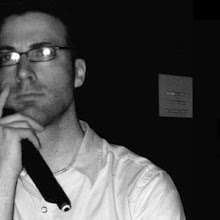King of New Media
One of my guiltiest of guilty pleasures is The Howard Stern Show, which airs on K-Rock (92.3 FM) in New York in the mornings and on the E! cable television station at night.
But this week it was announced that Howard and E! are breaking up after a 10-year engagement and have announced intentions to see other people. It's frustrating for everyone involved, it seems, as the show is the network's highest rated and scores of people are expected to lose their jobs, including default Stern Show personalities Scott DePace and Robin Radzinski. The last new E! show airs July 8 and there's no set date for how long that network will run reruns.
While imperfect, E!'s television format for Howard has been reliable and true to the spirit of the show. Frankly, there are things on the radio show that don't translate exclusively through radio speakers. A recent example of events that result in hysterical laughter on the radio without play-by-play description of what's going on could be, oh, the time that Richard Christy ate a strawberry from a crevasse.
SpikeTV is rumored to have the inside track for the next television broadcast rights, which, probably will be about the same quality as E!'s shows. However, with Howard making the jump to Sirius sattelite radio Jan. 1, the already bawdy material might make rebroadcasting uncensored material virtually impossible, especially in an era when the FCC has cracked down in unprecedented fashion and more Americans seem willing to waive First Amendment rights with passive acceptance of the PATRIOT Act and censorship tactics.
So the natural question is, why doesn't a premium cable network like HBO agree to a contract with Howard? On the surface, it seems like a perfect match:
1. HBO and other premium networks that require additional payment above standard cable fees have far fewer censorship laws apply to them, because consumers must pay to acquire the service (as opposed to terrestrial radio, which is free, and cable networks, which are a part of most American households). So racier material on Sirius would have a much better shot of being rebroadcast in its entirety on a premium channel, compared to E! and similar networks that choose to pixelate private parts and bleep expletives.
2. TimeWarner is perceived to err on the side of liberal media (i.e. CNN); Howard, although a self-proclaimed independent, has slammed George W. Bush and his administration over the last three years.
3. HBO ratings are down, according to an article that I cited earlier this week. With "The Sopranos" contract set to expire next year, millions of young men might not have enough incentive to subscribe to the premium cable network.
But as this week's CNN article about Howard states, "HBO already discontinued its discussions with Stern." Quite a shame.
After being perplexed by Howard and Co. not seeing eye-to-eye with HBO, I realized a few reasons that talks might have ended before they started.
HBO is not exactly free-spending, focusing more on content than star-power. As my very intelligent brother pointed out, "The networks learned that when they gave big name actors sitcoms, (they) flopped."
As a result, when James Gandolfini asked for a $1 million paycheck per episode (on par with the overrated cast of "Friends" in one of their final seasons), the impasse lead to a March 2003 halt in the production of the show, an ugly mudslinging contest and battling lawsuits. The impasse ended with a settlement somewhere in between the actor's salary request and HBO's hard "no," but needless to say, the network isn't quick to pad the salaries of talent when commercial advertisements aren't a part of the revenue collection.
So when Howard Stern, who secured a five-year deal purported to reach half a billion dollars, mulls production value and personal revenue, he's got no shot to convince HBO suits that he's worth more than what Gandolfini got. It's hard to believe that a man who has more than a few arguments supporting his "King of All Media" moniker doesn't have the executive clout of Tony Soprano, but I think that happens to be the case.
Howard's also a bit of a control freak: in good ways (limiting show merchandising) and bad (the limited release of decades of previous material). HBO probably would want more control over the show that has been Howard's baby since its inception. With a far less popular powerhouse lineup, SpikeTV probably would be more willing to concede some ground to land the Stern Show.
Anyway, I just hope someone picks up Howard soon. There's no edgier comedy on television.



0 comments:
Post a Comment